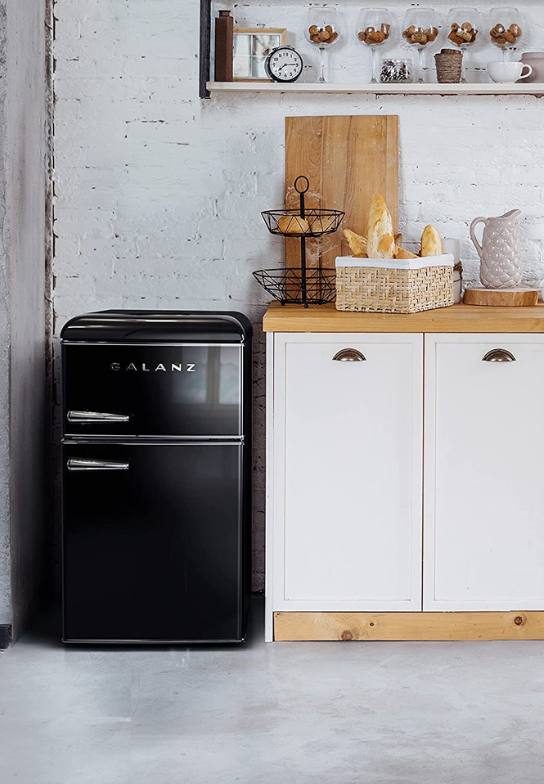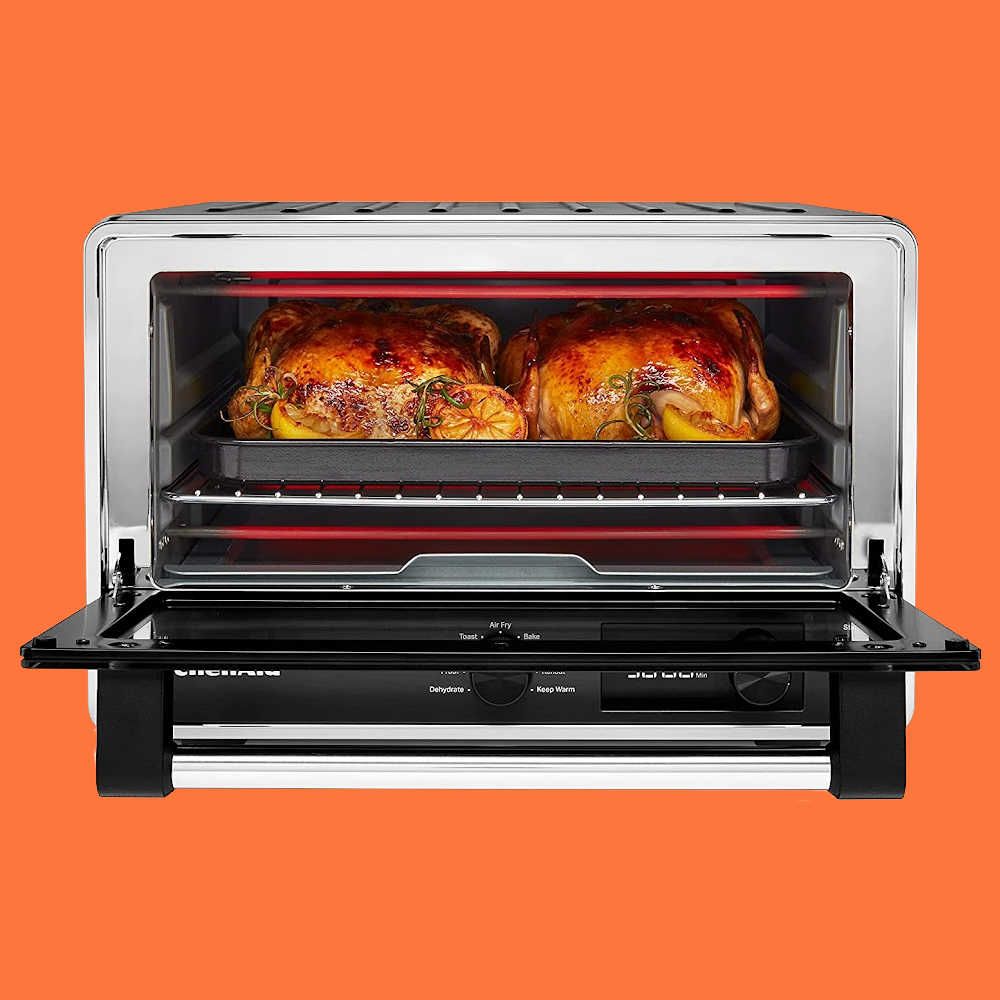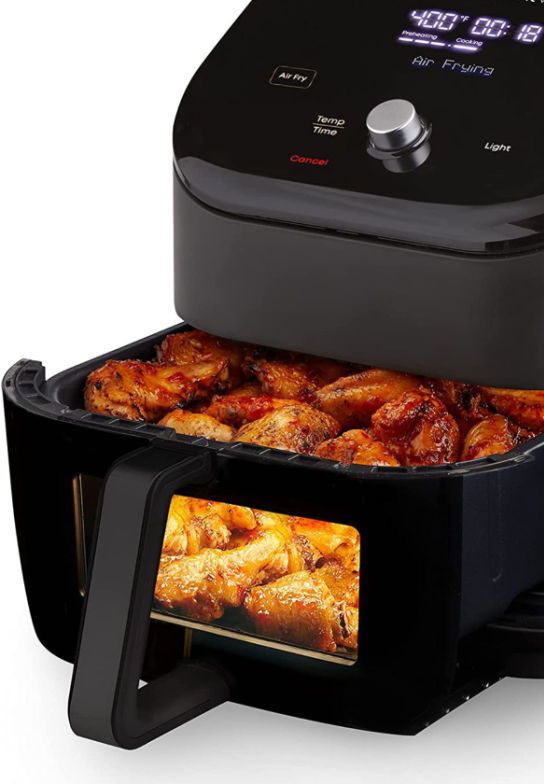Content Summary
Mini fridges have become a popular household appliance because of their compact size and convenience. They can be used in bedrooms, apartments, dorm rooms, offices, and other small spaces.
Some people are concerned about whether mini-fridges are safe to use. Are they potential fire hazards? Is it safe to keep them in your bedroom (or, dorm room)? What safety tips should you follow for safe use?
In this guide, we will cover everything you need to know about mini fridge safety.


In general, mini refrigerators are safe to use as long as you follow the recommended safety guidelines. Make sure to place the fridge on a level surface away from any heat sources, do not overload it, ensure proper air circulation, and always inspect the fridge cord for damage.
With these in mind, you can use your mini refrigerator in your bedroom without worrying about any potential hazards.
It is important to be aware of potential risks and take safety measures to prevent accidents from happening. Read on!

1. Are Mini Fridges Safe In Bedrooms?
Many people like to keep their mini-fridge in their bedroom for easy access to snacks and drinks. It's safe to keep a mini-fridge in your bedroom as long as you use it properly and with caution. Tips:
- Keeping it away from heat sources: The fridge should be placed on a level surface away from any heat sources such as radiators, space heaters, or direct sunlight.
- Make sure the cord is not damaged: Check the power cord regularly and make sure it is not damaged or frayed.
- Not overloading the fridge: Do not overload it with too many items as this can cause it to overheat.
- Avoid placing it on a soft surface: Do not place the fridge on a soft surface such as a carpet, mattress, sofa, or bed.
- Unplug the fridge when not in use: Unplug the fridge when it is not in use to prevent any electrical faults as a precaution, such as when you are away on vacation.
By following these safety measures, a mini fridge can be safely used in a bedroom.
2. What Are Mini Fridge Potential Dangers?
While mini-fridges are generally safe to use, there are potential dangers you should be aware of.
- Overheating due to overloading: One hazard is overloading the fridge with too many items. This can cause the fridge to overheat, leading to a fire.
- Overheating due to lacking ventilation: This can happen if there is little or no air circulating around the back and sides of the mini-fridge, or when it is placed in direct sunlight or next to a heat source and even ventilation won't help.
- Electrical malfunction: Another risk factor is a malfunction of the fridge's electrical components, such as a short circuit or frayed cords.
- Leaking refrigerants: Some mini fridges contain refrigerants that can be harmful to your health if they leak. This is rare. However, besides its health risk it can be a fire hazard if it happens: refrigerant absorbs heat. Always keep an eye on any leak. Good maintenance is pro-active and can help prevent a leak.
- The risk of food spoilage: Food that's beyond its expiration date (or worse) can lead to food poisoning. It is important to make sure the mini-fridge is set to the proper temperature and to monitor its contents for freshness.
Always read the manufacturer's instructions carefully and follow their recommendations to prevent any potential hazards.
3. What Safety Tips Should I Take?
To ensure that your mini fridge functions safely, here are some safety tips you should follow:
- Ensure that the fridge's ventilation system is not blocked to prevent any fire hazards.
- Place the fridge on a level surface away from heat sources. These may affect the internal temperature, particularly when you frequently open and close the doors.
- Do not overload the fridge with too many items.
- Set it to the proper temperature.
- Unplug it from its electrical outlet when not in use or when cleaning the interior.
- Keep the fridge clean and free of any spills or leaks.
- Check for any visible damage or loose electrical cords, and replace them if it's damaged.
- Keep the fridge door closed when not in use. In particular, when you live in a hot climate and put your mini fridge outdoors. But also, when you have your mini fridge inside to prevent unnecessary loss of cool air.
- Read and apply the manufacturer's manual you have received with your new mini fridge carefully. If you have lost it, or have a used mini fridge without one, look up the manual online.
- If you smell any suspicious odors, such as burning plastic or a chemical scent, immediately unplug the fridge, and contact a professional technician to have it repaired.
By following these simple safety tips, you can minimize the risks associated with using a mini fridge.


Mini-Fridges Safety Measurements FAQs
Here are some frequently asked questions about mini-fridge safety.
Can a mini fridge overheat?
A mini fridge can overheat if it is overloaded, placed in direct sunlight or next to a heat source, or not properly ventilated. To prevent overheating, it is important to follow the manufacturer's instructions and not overload the fridge with too many items.
How hot can a mini fridge get?
The maximum temperature of a mini fridge is usually set by the manufacturer. This can vary depending on the model, but it is typically between 34°-40°F.
If the temperature inside your fridge is higher than this, it could be a sign that the fridge is overheating. The safe temperature of your fridge you will find in your owner's manual.
Does a mini fridge need ventilation?
Compact fridges need ventilation to function properly. Without proper ventilation, the fridge can overheat and due to refrigerator fluid heating up and producing refrigerator gas become a fire hazard. Make sure to keep the vents on the fridge unobstructed and free of any debris.
How common is a freon leak?
A freon leak is rare, especially in modern refrigerators, but it can be a fire hazard if not maintained properly. It is important to check the fridge periodically for damage and replace any worn or frayed cords.
Additionally, make sure to read the manufacturer's instructions carefully and follow their recommendations for safe use.
Can freon leak from a mini fridge?
Mini fridges do not typically contain freon, but they can contain other refrigerants that can be harmful if leaked.
To prevent this from happening, always follow the manufacturer's instructions and keep the fridge in good condition. If you suspect that a refrigerant is leaking, contact a professional for repairs.
What does Freon smell like?
Freon has a strong, chemical smell that can be detected from a distance. If you notice any suspicious odors coming from the fridge, such as burning plastic or a chemical scent, unplug it and contact a reliable technician for repairs.
What are symptoms of freon poisoning?
Symptoms of freon poisoning include dizziness, headache, nausea, vomiting, chest pain, and difficulty breathing. If you suspect you or someone else has been exposed to Freon, seek medical attention immediately.
Can a mini fridge produce carbon monoxide?
No, a mini fridge does not produce carbon monoxide. Carbon monoxide is an odorless and colorless gas produced by the combustion of certain fuels, such as gasoline or wood.
However, it is important to make sure the mini-fridge is regularly checked and maintained to prevent any electrical faults that could cause a fire.
In need of a quality mini-fridge with freezer or a retro compact fridge? Check out our picks for the top mini fridge models below. We have researched and reviewed the best models to ensure you get the best mini fridges that come with safety features.


It is important to observe basic safety guidelines to prevent accidents and to ensure the longevity of the appliance. Remember to always stay alert and cautious when using any electrical appliance, including mini-fridges.
Happy cooling!
Catchy Finds
















